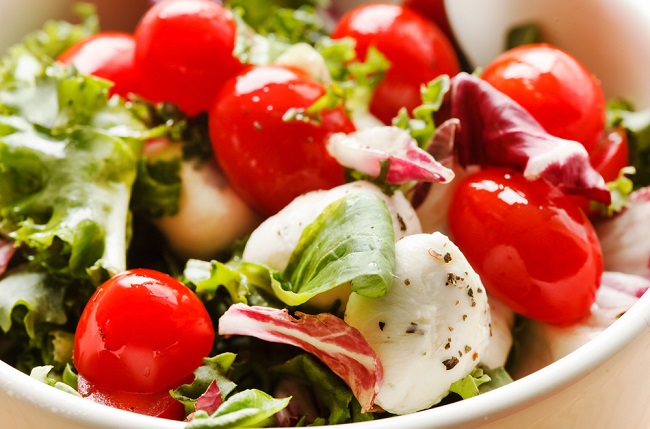Today, it is not clear if a man’s nutrition affects his ability to develop prostate cancer, however, several nutritional interventions are promising to help prevent this type of cancer, most possibly related to Lycopene, a reddish pigment that gives color to fruits and vegetables.

A man has a 1 in 5 chance of developing prostate cancer in his lifetime. Prostate cancer is the second most common cancer, just after the skin cancer. The men with the highest risk of suffering from this disease are those over 50 years of age, African-American, or those with a family history (father, brother), who have suffered from prostate cancer.
How to detect prostate cancer?
A blood test, called PSA (Prostate Specific Antigen), is commonly used to identify problems with the prostate, a walnut- sized gland that is part of the male reproductive system. The high levels of PSA indicate that the prostate can be inflamed, infected or increased, but even with these conditions, it may or may not indicate the presence of cancer, so other recommended tests and other diagnostics, such as a biopsy.
Research has revealed that eating a vegetarian diet can exert some protection against prostate cancer and although this kind of diet sounds promising, it is not in itself something that completely prevents the appearance of this condition, but it is highly recommended for its prevention and for other diseases. Part of this benefit may be thanks to lycopene, a reddish pigment that colors fruits and vegetables such as tomatoes, apricots or apricots, guava and watermelons.
Red foods rich in lycopene.
Recent research has shown that lycopene helps lower PSA levels and decrease the risk of developing prostate cancer. While lycopene is found naturally in an OOD, some studies have shown the benefits of using supplements of lycopene. However, when we eat foods high in lycopene, those with red pulp, we also receive a lot of other nutrients that work together to fight cancer.
List of red foods to prevent prostate cancer.
The main foods that contain lycopene are foods with reddish pigment, however there are also other fruits and vegetables that contain it:
- Tomatoes.
- Red pepper.
- Watermelon.
- Plums.
- Papaya.
- Apricots.
- Grapefruit.
- Carrots.
- Asparagus.
By the way, the lycopene from foods cooked with a little oil is better absorbed into the body than those that are eaten raw. The tomatoes cooked in oil of olive, for example, release more lycopene in the body than raw tomatoes. The vitamin D is another nutrient of interest in the fight against prostate cancer. This vitamin in hormones, can have a protective effect on the cells of the gland of the prostate, this according to various cancer research institutes.
Some studies have found that men with prostate cancer who were treated with vitamin D experience low levels of PSA in the blood; Although other studies have not shown the same benefit, however, a recent review article concluded that Vitamin D-based therapies for Prostate cancer may soon be a medical practice.
Caution: Vitamin D can be very toxic when taken in doses greater than 10,000 IU (International Units) per day for a period of many years. Always consult your doctor, before starting any type of nutrition therapy.
